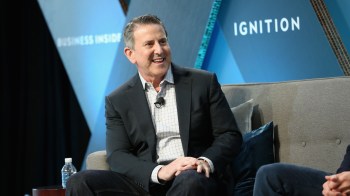
Yet another version of the fiduciary rule is coming

Retirement savings advisers having to put their clients’ interests first over making a buck for themselves — that wasn’t formalized for years, and then it was under President Barrack Obama.
Just a couple years later, a court overturned these rules for retirement planners, and then the Donald Trump administration came in with its own set of regulations for all of this. It’s something important but with a bureaucratic-sounding name: the fiduciary standard. And it’s getting yet another overhaul with the Joe Biden administration.
Marketplace’s senior economics contributor, Chris Farrell, has been following this story for a long time. He spoke with “Marketplace Morning Report” host David Brancaccio, and the following is an edited transcript of their conversation.
David Brancaccio: So it’s this fiduciary standard for retirement savings. Tell us more.
Chris Farrell: OK, so briefly, what the fiduciary rule says is advisers must put their clients’ interests first. They must eliminate conflicts of interest and promote transparency in all dealings. Now, David, common sense says if you’re working with a professional adviser, you’re going to assume that they’re already acting in your best interest. So the rule codifies the expectation. And the shift also acknowledges that difficulties have emerged in an era that’s been dominated by workplace accounts like 401(k)s and IRAs.
Brancaccio: All right, formalizing the standard and making it apply to retirement plan advisers — making them act in the client’s best interest — was long in the making. I mean, you and I have been covering this for years.
Farrell: I mean, the rule took something like eight years to write, and it was completed in the twilight of the Obama administration. The Trump administration, they didn’t like the rule and industry groups challenged the regulation in court. Now, the U.S. Court of Appeals for the Fifth Circuit overturned the rule change in 2018, saying that the Labor Department had overreached. The Biden administration’s new version is slated to start going into effect on Sept. 23.
Brancaccio: What do you think — the new version’s going to stick?
Farrell: It’s almost certain lawsuits are going to be filed challenging the new rules. Nevertheless, David, it just seems to me it’s a no-brainer. If you say to retiree, “I’m a trusted financial advisor,” that you should act as a fiduciary and put the client’s interests ahead of your own.
Brancaccio: But sometimes, especially on something like this, the very hardest parts are in the nitty-gritty.
Farrell: Yes. Well, let me highlight two. They come from Morningstar, the research firm, and they say, look, small workplace plans — they tend to come with high fees, the 401(k)s. And they believe that this new rule will push for the plan sponsors to construct portfolio choices that will have more lower-fee options. And that could save plan participants — and this is their estimate — $55 billion over 10 years. Morningstar also believes the new rule, it will drive down commissions on fixed-index annuities. Estimated savings for workers, over 10 years: nearly $33 billion. And that’s not chump change.
Brancaccio: Yeah, I mean, it’s a “b” in that — $55 billion and $33 billion.
Farrell: That’s right. So my takeaway: There is no doubt that the financial benefits from requiring the fiduciary standard are real for ordinary workers who are saving for their retirement. And that is what matters.
There’s a lot happening in the world. Through it all, Marketplace is here for you.
You rely on Marketplace to break down the world’s events and tell you how it affects you in a fact-based, approachable way. We rely on your financial support to keep making that possible.
Your donation today powers the independent journalism that you rely on. For just $5/month, you can help sustain Marketplace so we can keep reporting on the things that matter to you.

















